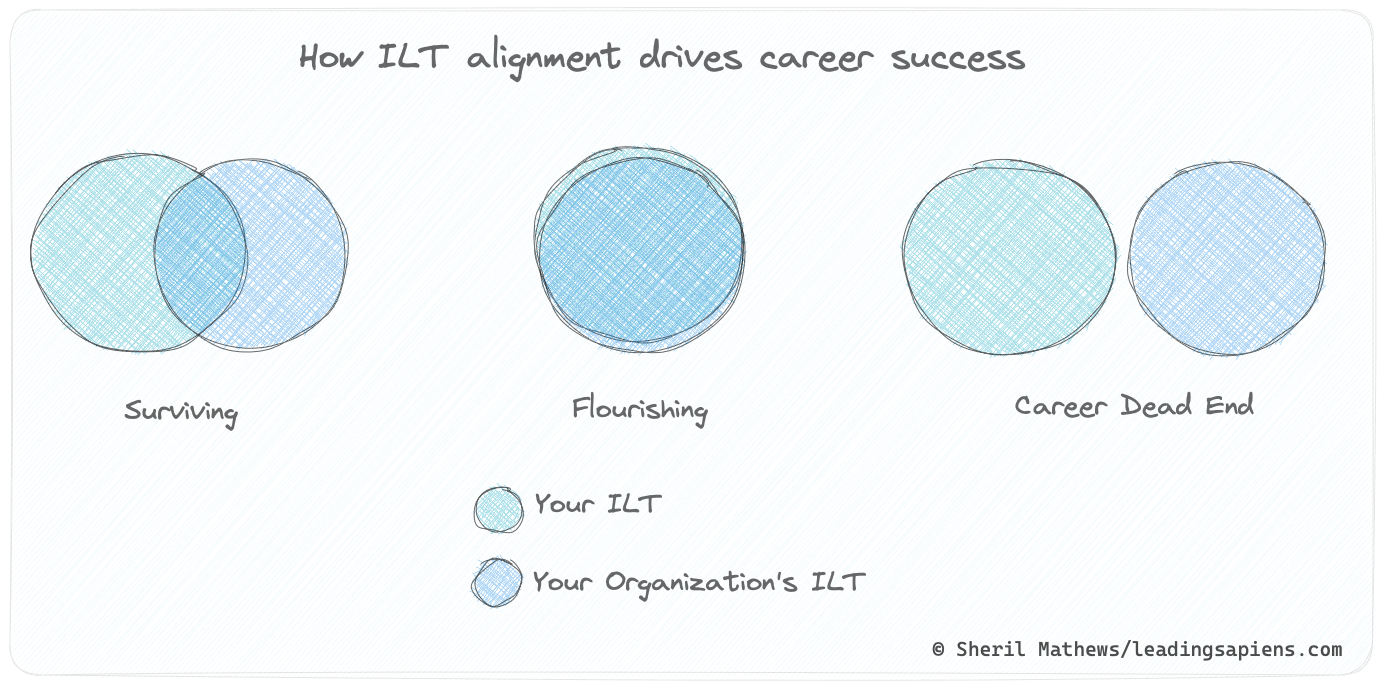What is leadership effectiveness? It’s easy to think about effective leadership in terms of charisma or innate traits. But that would be the easy way out and also not actionable. In contrast, consider Peter Drucker’s notion of effectiveness as a set of practices. What are these practices and how are they different?
Leadership effectiveness
Effective leadership is a perennial topic that scores of management thinkers have written about. One of the most articulate but equally practical voice on this issue was Peter Drucker, the father of modern management.
In Management, he outlines three requirements of effectiveness:
Management effectiveness requires three interconnected skills and practices...
• Specific skills managers must acquire to be effective as leaders
• Particular tasks that managers must perform to lead their organizations to effectiveness
• Personal skills and practices that make individuals effective both in life and in managerial practice
Across his large volume of work, he addressed effectiveness in its various dimensions. But what he emphasized the most was that effectiveness was a set of practices that you work hard to develop rather than innate characteristics or traits.
He highlighted how effectiveness is more of a discipline and a practice that can be learned, and not inborn talent.
What are these practices and how are they different from characteristics?
Practices and effectiveness
The biggest difference is that practices, and by extension effectiveness, can in fact be worked at, developed and learned over time. More importantly, over the course of a long career, practices are more likely to increase your chances of success as compared to intelligence or even knowledge.
At the highest levels, intelligence and knowledge become common commodities. What makes one more likely to stand out and succeed is the level of development of practices and consistency of execution.
Drucker made several important points about effectiveness and practices:
Effectiveness has to be learned
In forty-five years of work as a consultant with a large number of executives in a wide variety of organizations—large and small; businesses, government agencies, labor unions, hospitals, universities, community services; American, European, Latin American, and Japanese—I have not come across a single “natural”: an executive who was born effective.
All the effective ones have had to learn to be effective. And all of them then had to practice effectiveness until it became habit. But all the ones who worked on making themselves effective executives succeeded in doing so. Effectiveness can be learned—and it also has to be learned.
The importance of practices to effectiveness
To be reasonably effective it is not enough for the individual to be intelligent, to work hard, or to be knowledgeable. Effectiveness is something separate, something different. But to be effective also does not require special gifts, special aptitude, or special training. Effectiveness as an executive demands doing certain—and fairly simple—things. It consists of a small number of practices...
Practices trump intelligence and talent
There seems to be little correlation between a man’s effectiveness and his intelligence, his imagination, or his knowledge.
Brilliant men are often strikingly ineffectual; they fail to realize that the brilliant insight is not by itself achievement. They never have learned that insights become effectiveness only through hard systematic work.
Conversely, in every organization there are some highly effective plodders. While others rush around in the frenzy and busyness which very bright people so often confuse with “creativity,” the plodder puts one foot in front of the other and gets there first, like the tortoise in the old fable.
Effectiveness is a set of practices
Effectiveness, in other words, is a habit; that is, a complex of practices. And practices can always be learned. Practices are simple, deceptively so; even a seven-year-old has no difficulty in understanding a practice. But practices are always exceedingly hard to do well.
They have to be acquired, as we all learn the multiplication table; that is, repeated ad nauseam until “6 x 6 = 36” has become unthinking, conditioned reflex, and firmly ingrained habit. Practices one learns by practicing and practicing and practicing again.
To every practice applies what my old piano teacher said to me in exasperation when I was a small boy. “You will never play Mozart the way Arthur Schnabel does, but there is no reason in the world why you should not play your scales the way he does.” What the piano teacher forgot to add—probably because it was so obvious to her—is that even the great pianists could not play Mozart as they do unless they practiced their scales and kept on practicing them.
There is, in other words, no reason why anyone with normal endowment should not acquire competence in any practice. Mastery might well elude him; for this one might need special talents. But what is needed in effectiveness is competence. What is needed are “the scales.”
Practices of effective executives
In the original edition of The Effective Executive, Drucker outlined five practices, what he called "habits of the mind," essential to being an effective manager and leader:
1. Effective executives know where their time goes. They work systematically at managing the little of their time that can be brought under their control.
2. Effective executives focus on outward contribution. They gear their efforts to results rather than to work. They start out with the question, “What results are expected of me?” rather than with the work to be done, let alone with its techniques and tools.
3. Effective executives build on strengths—their own strengths, the strengths of their superiors, colleagues, and subordinates; and on the strengths in the situation, that is, on what they can do. They do not build on weakness. They do not start out with the things they cannot do.
4. Effective executives concentrate on the few major areas where superior performance will produce outstanding results. They force themselves to set priorities and stay with their priority decisions. They know that they have no choice but to do first things first—and second things not at all. The alternative is to get nothing done.
5. Effective executives, finally, make effective decisions. They know that this is, above all, a matter of system—of the right steps in the right sequence. They know that an effective decision is always a judgment based on “dissenting opinions” rather than on “consensus on the facts.” And they know that to make many decisions fast means to make the wrong decisions. What is needed are few, but fundamental, decisions. What is needed is the right strategy rather than razzle-dazzle tactics.
Several decades later in 2004, he wrote an award winning HBR article where he outlines a similar set of practices common amongst the most effective leaders:
An effective executive does not need to be a leader in the sense that the term is now most commonly used. Harry Truman did not have one ounce of charisma, for example, yet he was among the most effective chief executives in U.S. history.
Similarly, some of the best business and nonprofit CEOs I’ve worked with over a 65-year consulting career were not stereotypical leaders.
They were all over the map in terms of their personalities, attitudes, values, strengths, and weaknesses. They ranged from extroverted to nearly reclusive, from easygoing to controlling, from generous to parsimonious.
What made them all effective is that they followed the same eight practices:
1. They asked, “What needs to be done?”
2. They asked, “What is right for the enterprise?”
3. They developed action plans.
4. They took responsibility for decisions.
5. They took responsibility for communicating.
6. They were focused on opportunities rather than problems.
7. They ran productive meetings.
8. They thought and said “we” rather than “I.”
...I’m going to throw in one final, bonus practice. This one’s so important that I’ll elevate it to the level of a rule: Listen first, speak last.
Effectiveness 101
When managers falter in performance and results, Drucker's list is a good back to basics reference to check for blindspots. More often than not, they are slipping in one of these practices or do not have one sufficiently developed.
If you are relatively early in your career, Drucker's list is a good one to work at and develop over time. This can be a competitive advantage over others who might be smarter and more talented. In the long run consistent practices will beat intelligence any day, as Drucker was so keen to emphasize.
Effective executives differ widely in their personalities, strengths, weaknesses, values, and beliefs. All they have in common is that they get the right things done. Some are born effective. But the demand is much too great to be satisfied by extraordinary talent.
Effectiveness is a discipline. And, like every discipline, effectiveness can be learned and must be earned.
📚 You also get a curated spreadsheet of 100 best articles Harvard Business Review has ever published. Spans 70 years, comes complete with categories and short summaries.
Related reading
- Everyone has notions and assumptions about what leadership is and what an ideal leader is like. We might have picked these up from cultural norms and stereotypes, from something we read, or from our own experiences. The research term for this is Implicit Theory of Leadership and each of us has one. Blindspots in our implicit leadership theory can significantly alter career trajectories:

- Just like effectiveness, excellence and greatness are actually mundane — that was what Daniel Chambliss found in his multi year study of the top swimmers competing at all levels:

- Regardless of what implicit theory of leadership we might have, it’s worth noting that effectiveness in leadership can be learned as any other skill. But this also puts the onus of development squarely on our shoulders.
- Drucker emphasized running productive meetings as a core skill for effective leadership. Here are 9 rules for running effective meetings based on the ladder of inference model.
Sources
- Drucker’s Harvard Business Review article can be found here.
- The Effective Executive by Peter Drucker – should be required reading for every manager and leader.
- Management by Peter Drucker


